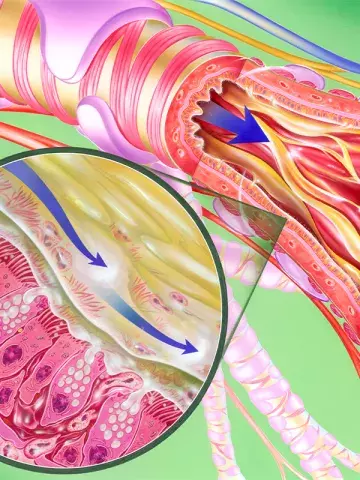Bisoprolol does not reduce COPD exacerbations, finds study
By Rebecca Jenkins
Treatment with the cardioselective beta blocker bisoprolol does not reduce exacerbations in chronic obstructive pulmonary disease (COPD), a UK randomised controlled trial has found.
Analyses of observational and interventional studies of beta blockers used for cardiovascular indications had shown that cardioselective beta blockers were well tolerated in patients with COPD and associated with reductions in exacerbations and mortality, UK researchers wrote in JAMA.
However, a previous randomised trial – Beta Blockers for the Prevention of Acute Exacerbations of Chronic Obstructive Pulmonary Disease (BLOCK COPD) – was stopped early due to futility and safety concerns, with metoprolol associated with a twofold increased risk of exacerbations requiring hospitalisations.
For the Bisoprolol in COPD Study (BICS), researchers recruited patients with COPD who had at least moderate air-flow obstruction on spirometry (ratio of forced expiratory volume in the first second of expiration [FEV1] to forced vital capacity <0.7; FEV1 <80% predicted) and at least two COPD exacerbations treated with oral corticosteroids, antibiotics or both in the prior 12 months.
Patients were randomised 1:1 to bisoprolol (n=261) or placebo (n=258), with bisoprolol started at 1.25mg orally daily and titrated as tolerated during four sessions to a maximum dose of 5mg/day.
Among the 515 patients (mean age 68 years) who were eligible to start study medication, primary outcome data were available for 514 patients who continued taking the study drug.
Researchers found that compared with placebo, bisoprolol did not decrease the number of self-reported exacerbations treated with oral corticosteroids, antibiotics or both at 52 weeks’ follow up (mean exacerbations, 2.01/year for placebo vs 2.03/year for bisoprolol).
The safety profile of bisoprolol was similar to that of placebo, with no increase in serious adverse events or total or respiratory adverse reactions, researchers reported.
Due to the COVID-19 pandemic, randomisation was stopped before they had reached the target enrolment of 1574 participants, the researchers noted.
Professor Christine McDonald, Director of Respiratory Medicine at Austin Health in Victoria, said previous retrospective studies and meta-analyses had suggested there might be a benefit of cardioselective beta blockers in COPD.
‘But taking BLOCK and BICS together we have no signal to use cardioselective beta blockers in patients with COPD who do not have a cardiovascular indication for their use,’ she said.
‘BLOCK using metoprolol was indeed associated with an increased risk for hospitalisation for exacerbation.’
However, Professor McDonald suggested that in patients with COPD and cardiovascular disease it would be worth assessing the individual risk/benefit of using a cardioselective beta blocker.
‘We must remember that beta blockers might be lifesaving in managing serious cardiovascular disease,’ she said.
However, she urged GPs to be prudent and to monitor for side effects or a worsening in COPD symptoms.
‘It’s also important to note there are data to support use of cardioselective beta blockers in asthma, if required, with careful monitoring,’ she added.


